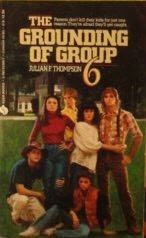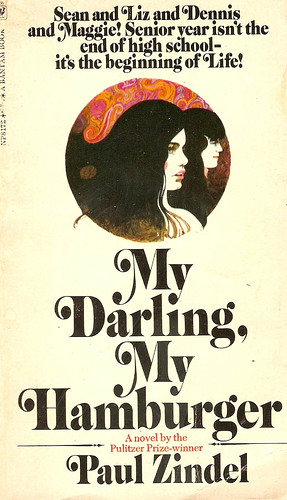 Two down. Four to go.
Two down. Four to go.I got more than expected from my re-reading of A Wrinkle in Time, but truth be told, I wasn't prepared for the emotional pummeling I received from Summer of My German Soldier. Like I wrote when I picked it for my challenge line-up, I have read a fair amount of books this past year that were in someway linked - thematically, plot, era, etc - to this book, but for as much as I've heard of it over the years, I've never had much interest in picking it up.
But Lizzie Skurnick piqued my interest with her look at the novel. Also, I'm always interested in older books, especially YA books, and how they deal with their chosen historical period. Written in 1973, Summer of My German Soldier covers a summer amidst WWII, and it's interesting to see what further distance from a time period does to a particular era's perspective.
 So how does Summer of My German Soldier hold up?
So how does Summer of My German Soldier hold up?Wonderfully, and somewhat alarmingly, well. Wonderful, because Greene's Patty Bergen remains a fresh, interesting, lovable (even if frustrating) protagonist. The unlikely alliance between Jewish Patty and Frederick Anton Reiker, a Nazi POW imprisoned near Patty's town, stands for more than a simple message of tolerance. Or, rather, it complicates the issue of tolerance, in that it becomes not a question of "should have shown such tolerance in this situation" but "What should be intolerable?"
If you break it down, there's every reason that Patty would find herself allied with Anton. He shows her interest and humor and genuine appreciation. He is impressed with her intellectual acumen and not put off by rambling, hyperbolic conversation. She sympathizes with his backstory, even envies his close relationship with his family. His family seemed to value intellect and despise the Nazi regime, yet they are weak to its control. The Bergens, on the other hand, seem to value purely money and social status, and they are very much in-line with the problems rooted deep into their town's society, including both institutional and outward racism, sexism, and a dedication to purely surface understanding.
While Patty can forgive Anton's participation as a Nazi soldier for being a smart boy from a good family in the wrong circumstances, she cannot come to terms with the disappointment that is her parents. Her father's simmering rage covered by sneering indifference. Her mother's near constant verbal abuse and put-downs. It's no wonder that Patty lies as much as she does: She'd do almost anything to win their approval, and approval from any of the town's adults, and that includes telling self-inflating falsehoods.
With Anton, Patty doesn't have to lie or fear reprimands for being herself. For a moment after admitting to Anton that she is Jewish, she is convinced he is going to go cold with hatred, but he just laughs in disbelief. A Jewish-American girl helping a German POW. He marvels at the situation.
Greene could be faulted for not giving Patty a more conflicted conscience or by not having Patty challenge Anton's innocence - I mean, yes, he had to go, so despite his family's good standing and intellectual nature, he is still a boy making a choice to go along with the regime in power - but far enough into the novel is the realization that Anton will never be an absolute real person with real faults and difficult things to swallow. Patty is a twelve year old in desperate need of someone who can find the good in her. Anton, in doing so, allows Patty to find nothing but good in him. He is like the cheap glass "diamond" broach that he uses to bribe a guard to escape prison. His outward self is something unseemly and undesirable, but he becomes so much more valuable in his active, useful form. The Anton that Patty feeds and shelters and protects from harm is a more realized form of the Anton that is led off a train to a prison for being a German soldier.
Patty never gets to the next level of Anton, the one that exists in tandem and outside these circumstances, the one that has to account for all that he has done and not simply for the good, respectable parts. But his friendship is enough for her, and long after her actions are discovered, and she is sent to a reformatory school, she is reminded to hold onto the memories of his feelings for her. She found someone to value her for the very traits that her parents either dismissed or became enraged about, and that surpassed any preconceptions about him, that surpassed blind hatred and disgust.







